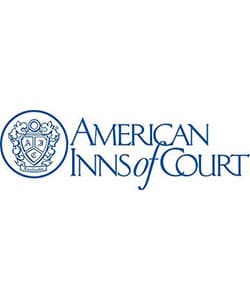Understanding who is responsible for an accident is a critical aspect of any personal injury case. This determination of fault not only influences the potential outcome of a case but also significantly impacts the amount of compensation that can be recovered by the injured party. In Idaho, personal injury law adheres to specific principles and rules to ascertain fault, and comprehending these principles is essential for anyone involved in such incidents.
This exploration into determining fault in an Idaho personal injury accident will provide insight into the process, the factors considered, and how legal representation can make a significant difference in the pursuit of justice and compensation.
The Concept of Negligence in Idaho Personal Injury Law
At the heart of determining fault in Idaho personal injury cases is the concept of negligence. Negligence occurs when an individual fails to act with the level of care that a reasonably prudent person would have exercised under the same circumstances. In legal terms, proving negligence involves demonstrating four key elements: duty, breach, causation, and damages. The injured party must show that the defendant owed them a duty of care, that the defendant breached this duty, that the breach directly caused the injury, and that the injury resulted in actual damages such as medical expenses, lost wages, or pain and suffering.
Duty of Care and Its Breach
In personal injury cases, the duty of care refers to the legal obligation to avoid causing harm to others. This duty varies depending on the relationship between the parties and the circumstances of the incident. For instance, drivers have a duty to operate their vehicles safely and follow traffic laws to prevent accidents, and property owners must ensure their premises are safe for visitors and free from hazards that could cause injury. When this duty is breached — meaning the individual fails to act as a reasonably prudent person would — they can be found negligent. In Idaho, demonstrating this breach often requires evidence such as eyewitness testimonies, surveillance footage, or accident reports.
Causation
Once a breach of duty is established, it is essential to prove causation. Causation means showing that the defendant’s breach of duty directly caused the injury. This step involves establishing a clear link between the breach and the harm suffered by the plaintiff. In some cases, causation can be straightforward, such as when a driver runs a red light and hits another vehicle. However, in other cases, it can be more complex. For example, if an individual slips and falls on a wet floor in a store, they must prove that the store’s failure to clean the spill was directly responsible for their injuries. Medical records, testimony, and accident reconstruction may be necessary to establish causation convincingly.
Comparative Negligence in Idaho
Idaho follows the rule of comparative negligence, which can complicate the determination of fault. Under comparative negligence, an injured party’s compensation may be reduced if they are found to be partially at fault for the accident. Idaho’s comparative negligence rule allows a plaintiff to recover damages as long as they are less than 50 percent responsible for the accident. If the plaintiff is found to be 50 percent or more at fault, they cannot recover any damages. This rule necessitates a thorough examination of all parties’ actions to determine the degree of fault accurately. Insurance companies and defense attorneys often use this rule to argue that the plaintiff bears some responsibility, thus reducing the amount of compensation.
Gathering Evidence to Prove Fault
Proving fault in an Idaho personal injury accident requires substantial evidence. This evidence can include police reports, medical records, witness statements, photographs of the accident scene, and testimony. Each piece of evidence plays a crucial role in building a compelling case. Police reports often provide an objective account of the accident, including details about traffic violations or other contributing factors. Medical records document the extent of the injuries and the treatment required, linking them to the accident. Witness statements offer third-party perspectives that can corroborate the plaintiff’s account. Photographs of the scene help illustrate the conditions at the time of the accident, such as road hazards, weather conditions, or property defects. The testimony — particularly from accident reconstruction specialists — can provide a detailed analysis of how the accident occurred and who is likely at fault.
The Role of Insurance Companies
Insurance companies are deeply involved in the process of determining fault. They conduct their investigations, review evidence, and assess the degree of responsibility for each party involved. However, it is important to remember that insurance companies aim to minimize their payouts. As a result, they may attempt to shift more blame onto the injured party or downplay the severity of the injuries. Navigating these interactions requires a deep understanding of insurance policies and negotiation tactics. It is often beneficial for the injured party to have legal representation to ensure that their rights are protected and that they receive a fair evaluation of their claim.
Legal Representation and Its Impact
Having a knowledgeable personal injury attorney can significantly impact the outcome of a case. Attorneys understand the intricacies of Idaho’s personal injury laws and the tactics used by insurance companies. They can gather and present evidence effectively, negotiate with insurance adjusters, and advocate for their clients in court if necessary. An attorney can also help injured parties understand their rights and the potential value of their claims, providing guidance throughout the legal process. This support can be particularly valuable when dealing with the emotional and physical toll of an injury.
Rules of a Personal Injury Claim Choosing a Personal Injury AttorneyRelated Videos
Statute of Limitations in Idaho Personal Injury Cases
It is crucial to be aware of the statute of limitations for filing a personal injury claim in Idaho. The statute of limitations sets a deadline for initiating legal action, and missing this deadline can result in the loss of the right to seek compensation. In Idaho, the statute of limitations for personal injury cases is generally two years from the date of the accident. However, certain circumstances can alter this timeframe — making it essential to consult with an attorney as soon as possible to ensure that all legal deadlines are met.
The Importance of Prompt Action
Taking prompt action after an accident is vital for preserving evidence and building a strong case. Delays can result in lost or deteriorated evidence, faded memories of witnesses, and increased challenges in proving fault. Immediately after an accident, it is important to seek medical attention, document the scene, obtain contact information from witnesses, and report the incident to the relevant authorities. Consulting with an attorney early in the process can help ensure that all necessary steps are taken to protect one’s legal rights and increase the chances of a successful outcome.
Common Types of Personal Injury Accidents in Idaho
Personal injury accidents in Idaho can occur in various forms, each with its own set of challenges in determining fault. Some common types include car accidents, slip and fall incidents, medical malpractice, and workplace injuries. Car accidents often involve complex investigations to determine fault, considering factors such as traffic laws, vehicle conditions, and driver behavior. Slip and fall cases require a thorough examination of property conditions and maintenance practices. Medical malpractice cases involve assessing the standard of care provided by healthcare professionals. Workplace injuries may involve safety regulations and employer responsibilities. Each type of accident requires a tailored approach to gather evidence and establish negligence.
The Role of Comparative Fault in Compensation
The concept of comparative fault, as practiced in Idaho, plays a significant role in determining the amount of compensation an injured party can receive. If a plaintiff is found to be partially at fault for an accident, their compensation is reduced by their percentage of fault. For example, if a plaintiff is awarded $100,000 in damages but is found to be 20 percent at fault, they would receive $80,000. This rule underscores the importance of effectively presenting evidence and arguments to minimize the plaintiff’s percentage of fault and maximize their compensation. An experienced attorney can navigate the complexities of comparative fault to achieve a favorable outcome for their client.
The Psychological Impact of Personal Injury Accidents
Beyond the physical injuries, personal injury accidents can have a profound psychological impact on victims. The trauma of the accident, coupled with the stress of dealing with legal and financial matters, can lead to anxiety, depression, and other mental health issues. Recognizing and addressing these psychological effects is an important aspect of the recovery process. Seeking support from mental health professionals and understanding that compensation claims can include damages for emotional distress are vital steps for victims. Legal representation can alleviate some of the burdens by handling the complexities of the case, allowing the injured party to focus on their recovery.
The Path to Recovery and Justice
The path to recovery and justice after a personal injury accident in Idaho involves a multifaceted approach. It requires a thorough investigation to determine fault, the collection of compelling evidence, and a strong legal strategy to advocate for the injured party’s rights. Understanding the nuances of Idaho’s negligence laws, the role of insurance companies, and the impact of comparative fault are critical components of this process. With the support of a dedicated attorney, victims can navigate the legal system, seek the compensation they deserve, and focus on healing from their injuries.
Your Personal Injury Advocates
If you or a loved one has been injured in an accident in Idaho, it is essential to seek legal assistance to ensure that your rights are protected and that you receive the compensation you deserve. At Hepworth Holzer, LLP, our experienced personal injury attorneys are committed to providing compassionate and effective representation for our clients. We understand the complexities of determining fault and are dedicated to achieving the best possible outcome for your case. Contact us today to schedule a consultation and take the first step toward securing the justice and recovery you need. Let us help you navigate this challenging time with the experience and support you deserve.











